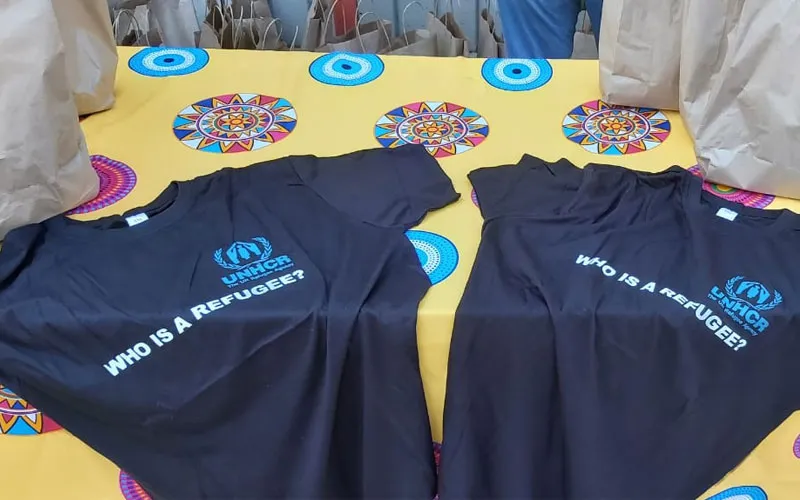“Pope Paul VI asserted that when someone learns to read or write, that person is empowered to do a job and shoulder a profession, to develop to self-confidence and realize that he or she can progress along with others,” SACBC members says.
They add in reference to Pope Paul VI, “His Holiness reminds us that literacy is the first and most basic tool for personal enrichment and social integration; and it is society's most valuable tool for furthering development and economic progress.”
In their message ahead of the World Refugee Day, the Bishops call upon countries hosting refugees and the forcibly displaced not to impede but encourage access to education for refugees by putting into place the necessary legal framework and making sure that no one of the young people is left behind or denied education.
As for “Together we shine” aspect of the 2021 World Refugee Day theme, members of SACBC encourage inclusion of refugees into host communities through sports.
They note that many refugees arrive in their host communities having been through traumatic experiences from their homes, while fleeing the push factors and also on their arrival at the borders.
(Story continues below)
According to the Catholic Bishops in the three Southern African countries of Botswana, Swaziland, and South Africa, many refugees continue to experience trauma in the host communities where they live.
They suggest that the “together we shine when we play as team,” is a more than welcome campaign to help refugees deal and heal from the many traumatic experiences that either forced them to leave their homes or that were suffered on their journey to their host communities.
“The Church joins the UNHCR in calling for greater support for refugee sport programs, primarily to facilitate healing, restoration of the violated intrinsic human dignity and self-confidence,” SACBC members say.
They add in reference to the Church, “She reminds us all through the words of Pope Francis that we are called to go out into the streets of every existential periphery in order to heal wounds and to seek out the straying, without prejudice or fear, without proselytizing, but ready to widen her tent to embrace everyone.”
Meanwhile, the Bishops have noted with concern that the care for refugees has been left to struggling countries while those endowed with resources shun the vulnerable group.
“Over the years many countries, especially countries with more resources, have conveniently and egoistically neglected their responsibility of sharing in the burden of welcoming, offering protection and integrating refugees in their host communities,” SACBC members lament.
They make reference to the UNHCR statistics that indicate that 86 percent of the more than 82 million refugees world-wide, are hosted in developing countries.
“We call upon all countries and nations to make their fair and just contribution in protecting and helping refugees relive their lives with dignity. We encourage all countries to play their ethical and moral role in the protection of refugees. Without their support the lives of the 82, 4 million forcibly displaced people will be forever shattered,” the Bishops appeal in their statement dated Friday, June 18 shared with ACI Africa.
“Let us all commemorate the World Refugee Day with a commitment to solidarity with refugees by protecting their dignity and helping them enjoy access to health care, education and sports programs,” SACBC members say.
Agnes Aineah is a Kenyan journalist with a background in digital and newspaper reporting. She holds a Master of Arts in Digital Journalism from the Aga Khan University, Graduate School of Media and Communications and a Bachelor's Degree in Linguistics, Media and Communications from Kenya's Moi University. Agnes currently serves as a journalist for ACI Africa.








